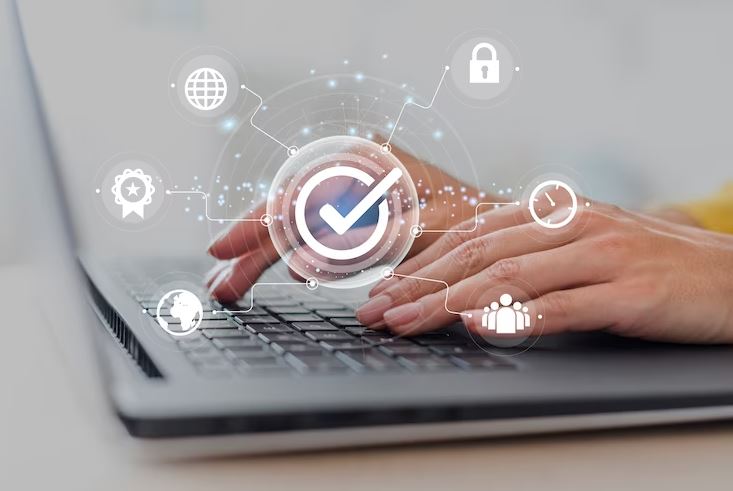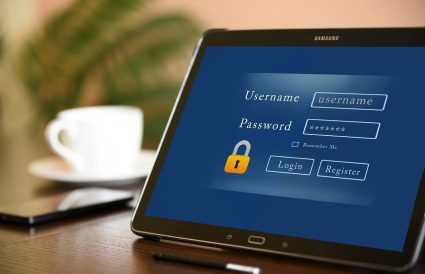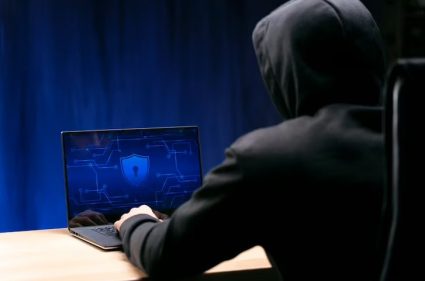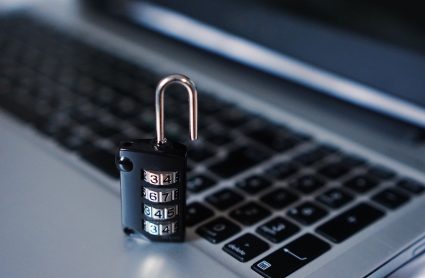
Using a laptop in today’s digital world comes with a host of security risks. As laptops are portable, they are at a greater risk of being stolen or hacked, resulting in the loss of important data. This is why it is essential to have a secure laptop that is protected by the most up-to-date security measures.
Content of the page
The Importance of Laptop Security
Keeping your laptop secure is important for any business or individual who relies on their laptop for work, personal use, or entertainment. Having a secure laptop is essential for protecting your data and personal information. It is also important to protect your laptop from hackers and other malicious actors who could potentially gain access to your sensitive data.
Having a secure laptop also helps to protect against viruses, spyware, and other malicious software. These types of software can be used to steal personal information, access your banking information, and even take control of your computer. Having a secure laptop can help to protect you from these types of threats.
The Risks of Not Securing Your Laptop
Not securing your laptop could have serious consequences. If your laptop is stolen, then the thief could gain access to your personal data and potentially use it for malicious purposes. Additionally, hackers could gain access to your laptop and steal information or use your computer to launch malicious attacks.
Not securing your laptop can also lead to data breaches. Data breaches can have devastating consequences, such as the loss of customer data, financial information, and other confidential information. Data breaches can also lead to regulatory fines, legal action, and reputational damage.
1. Passwords and Authentication
Creating Strong Passwords
Creating strong passwords is one of the most important steps in securing your laptop. Strong passwords should be at least 8 characters long and include a combination of letters, numbers, and special characters. It is also important to avoid using the same password for multiple accounts and to change your passwords regularly.
When creating a strong password, it is also important to avoid using personal information such as your name, address, phone number, or birthdate. Additionally, it is recommended to use a password manager to help store and manage your passwords securely.
Using Two-Factor Authentication
Two-factor authentication (2FA) is an additional layer of security that requires two pieces of information in order to log into an account. The first piece of information is typically a password, and the second piece of information is typically a code that is sent to your phone or email address. This extra layer of security can help to protect your accounts from being accessed by unauthorized users.
Disabling Automatic Login
When using a laptop, it is important to disable the automatic login feature. This feature automatically logs you in when you turn on your laptop, which could potentially give an unauthorized user access to your account. Disabling the automatic login feature is a simple way to add an extra layer of security to your laptop.
2. Operating System and Software Updates
Importance of Updating Your Operating System
It is important to keep your laptop’s operating system updated. Operating system updates can help to protect your laptop from security vulnerabilities and fix any bugs or glitches that may be present. Additionally, it is important to ensure that all of your software is updated regularly in order to ensure the highest level of security.
Updating Your Software and Applications
Software and application updates are important for keeping your laptop secure. These updates can help to fix any security vulnerabilities that may be present and can also add new features and improve the performance of your laptop.
Software and application updates should be installed regularly in order to ensure the highest level of security. Additionally, it is important to only install software and applications from trusted sources in order to avoid installing malicious software.
Enabling Automatic Updates
Enabling automatic updates is a simple way to ensure that your laptop is always up-to-date with the latest security patches and updates. This feature can help to keep your laptop secure and can also help to save time as you won’t have to manually update your software and applications.
3. Anti-Malware and Antivirus Software
Importance of Anti-Malware and Antivirus Software
Having anti-malware and antivirus software installed on your laptop is critical for keeping your system secure. This type of software is designed to detect and remove malicious software, such as viruses, worms, and Trojans, from your computer. Without this protection, your laptop can become infected with malicious software that can steal your data, damage your system, or even take control of your machine.
Free vs Paid Security Software
When it comes to anti-malware and antivirus software, there are a few different options available. Free versions typically offer basic protection against viruses and other malicious software, but may not offer additional features such as web protection or ransomware protection. Paid versions, on the other hand, offer more comprehensive protection, including additional features and more frequent updates.
Regularly Scanning for Viruses and Malware
Once you have anti-malware and antivirus software installed on your laptop, it is important to regularly scan for viruses and malware. Regular scans help ensure that your system is free of malicious software and any potential threats are detected and removed. Most anti-malware and antivirus software offers the ability to schedule regular scans, so you can ensure your system is regularly checked for any potential threats.
4. Safe Internet Practices
Avoiding Phishing Scams and Suspicious Websites
When using the internet, it is important to be aware of potential phishing scams and suspicious websites. Phishing scams are designed to steal your personal and financial information, while malicious websites can contain malicious software designed to infect your computer. To protect yourself from these threats, it is important to be aware of the signs of a phishing scam and to avoid clicking on suspicious links or downloading content from unknown sources.
Using a Virtual Private Network (VPN)
Using a Virtual Private Network (VPN) can also help keep your laptop secure while browsing the internet. A VPN creates a secure connection between your device and the internet, allowing you to browse the web anonymously and securely. VPNs also help protect your data from being intercepted by hackers, as well as helping to prevent your IP address from being tracked.
Securing Your Wi-Fi Network
If you are using a laptop with a wireless connection, it is important to make sure your Wi-Fi network is secure. Using a strong password and enabling encryption can help protect your network from being accessed by hackers or other unauthorized users. Additionally, it is important to make sure your router is updated with the latest firmware to ensure your network is as secure as possible.
5. Physical Security Measures
Securing Your Laptop in Public Places
If you are using your laptop in a public place, such as a coffee shop, it is important to take extra precautions to keep it secure. Make sure to keep your laptop in sight at all times and be aware of your surroundings. Additionally, make sure to keep your laptop locked when not in use, as this will help prevent anyone from accessing your data.
Using a Laptop Lock
Using a laptop lock is another important security measure to protect your laptop. A laptop lock is a physical lock that attaches your laptop to a secure object, such as a desk or table, making it difficult for someone to steal your laptop. Laptop locks come in a variety of styles, including combination locks and key locks, so be sure to choose one that best fits your needs.
Protecting Your Laptop from Theft
To further protect your laptop from theft, it is important to be aware of your surroundings when using your laptop in public. If you notice anyone suspicious, be sure to move away from them and keep your laptop out of sight. Additionally, be sure to avoid leaving your laptop unattended in public places, such as cafes or libraries. If possible, it is best to carry your laptop with you at all times.
6. Best Practices for Laptop Security
When it comes to protecting your laptop from security threats, there are several basic measures you can take to ensure its safety. These practices include regularly backing up your data, enabling the “Find My Device” feature, and never leaving your laptop unattended.
Don’t Leave Your Laptop Unattended
Leaving your laptop unattended, even for a few minutes, can be a costly mistake. It can make your laptop vulnerable to theft and malicious attacks. Always take your laptop with you when you leave the house or office, and never leave it in an unsecured or public area.
Regularly Backing Up Your Data
Backing up your data regularly is an essential security practice. Doing so will ensure that you will not lose any important data should your laptop be stolen or corrupted. You can back up your data to an external hard drive, a cloud storage service, or both. You can also use a backup program that automatically backs up your data on a daily or weekly basis.
Enabling Find My Device Feature
If your laptop is ever stolen or lost, the Find My Device feature can help you locate it. This feature is available on most modern laptops and is usually enabled by default. If it is not enabled, you can usually access it through your laptop’s settings menu. Once enabled, you can use the feature to locate your laptop and remotely lock or erase its data.
Check also some laptop maintenance tips.
Conclusion
The Importance of Basic Laptop Security Practices
Basic laptop security practices are essential for protecting your device and data from malicious attacks and theft. By regularly backing up your data, enabling the “Find My Device” feature, and never leaving your laptop unattended, you can ensure that your laptop and data remain safe and secure.
Final Thoughts on Laptop Security
Laptop security should always be taken seriously. By following the basic security practices outlined above, you can help protect your laptop and data from theft and malicious attacks. Additionally, you should always be on the lookout for the latest security threats and take steps to protect your laptop accordingly.
Cleaning your laptop is what you may want to learn next.



